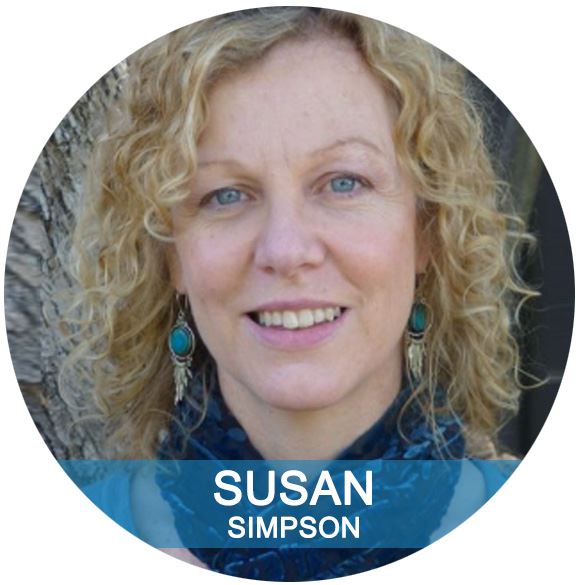- Home
- About
- ISST Board Elections
- 2018 Elections
- 2018 ISST Executive Board Winners
- Susan Simpson Personal Statement 2018
PERSONAL STATEMENTA bit about me… I am a Clinical Psychologist based in Scotland, and have been using Schema Therapy for over 20 years. I completed advanced individual certification in schema therapy in 2009, and became a supervisor-trainer in group schema therapy in 2015. My original schema training was with Jeffrey Young, Gunilla Fosse, Arnoud Arntz, Marjon Nadort, and Hannie van Genderen. Over the past 20 years, I have specialised in the treatment of eating disorders, alongside personality disorders and complex trauma. I also have a strong interest in therapists’ own schemas, and the way in which our schemas and modes affect our quality of life. Having worked in the UK-National Health Service for over 18 years, I am currently in a lead psychology post for eating disorder services in Scotland. In addition, I am director of Schema Therapy Scotland, a trainer for Schema Therapy Training Australia, and have provided supervision, workshops and schema therapy accreditation training in several countries, including UK, the Netherlands, Australia, and New Zealand. I feel privileged that all aspects of my work allow me to ‘eat, sleep and breathe’ Schema Therapy, through a combination of clinical work, training, supervision, research – and of course the trickiest bit - through being a parent. Although I currently live with my family in Scotland, in the recent past, we spent 6 years in in my home-country, Australia, where I lectured on a postgraduate clinical psychology training program, and provided schema therapy workshops across Australia for Schema Therapy Training Australia. During this time, I had the opportunity to focus on a range of schema-therapy-based research projects, including an investigation of (1) the effectiveness of Schema Therapy for complex eating disorders; (2) the link between early maladaptive schemas and burnout amongst therapists; and (3) online/videoconferencing-based therapies. I am also very excited to be co-authoring and editing the first book on Schema Therapy for Eating Disorders, which will be published by Routledge in 2019. Why vote for me? The ISST is truly an organisation where I feel at home and connected to likeminded people, who are committed to improving the quality of life of the people we work with, and ultimately, making the world a more compassionate place to live. I love the flexibility of the schema model, especially as it evolves to be applied to different clinical populations, and integrated with other therapeutic orientations. I feel particularly inspired by all of the innovative and creative developments that are showcased at the conferences and ENLIGHT ‘Summer Schools’ each year. I have been privileged to be involved in organising ENLIGHT 2019, which is due to take place in Edinburgh, Scotland. This has given me a great opportunity to work with ISST board members, and to take a lead role in conference organisation. I have thoroughly enjoyed being part of such a committed team, and this has given me new insight into the enormous amount of work that is going on behind the scenes in the ISST Executive Board, which provides the foundation of our organisation. In terms of my own outlook, I believe in giving all members the opportunity to have a say in shaping the way in which the ISST operates as an organisation. It would be great to provide more opportunities to allow members to increasingly involved in the way in which Schema Therapy evolves across countries and cultures. I believe in transparency in decision making and operations, and in giving all members of the ISST an opportunity to contribute and share their expertise and ideas. In particular, I would like to see Schema Therapy becoming more available within developing countries, and especially within populations and cultures that have endured widespread genocide and intergenerational trauma. If I am elected to the ISST board, I hope that my enthusiasm, organisational skills, and experience in organising ENLIGHT 2019 will enable me to both contribute to the well-being of the ISST, and to take care of the needs of our growing membership. |
